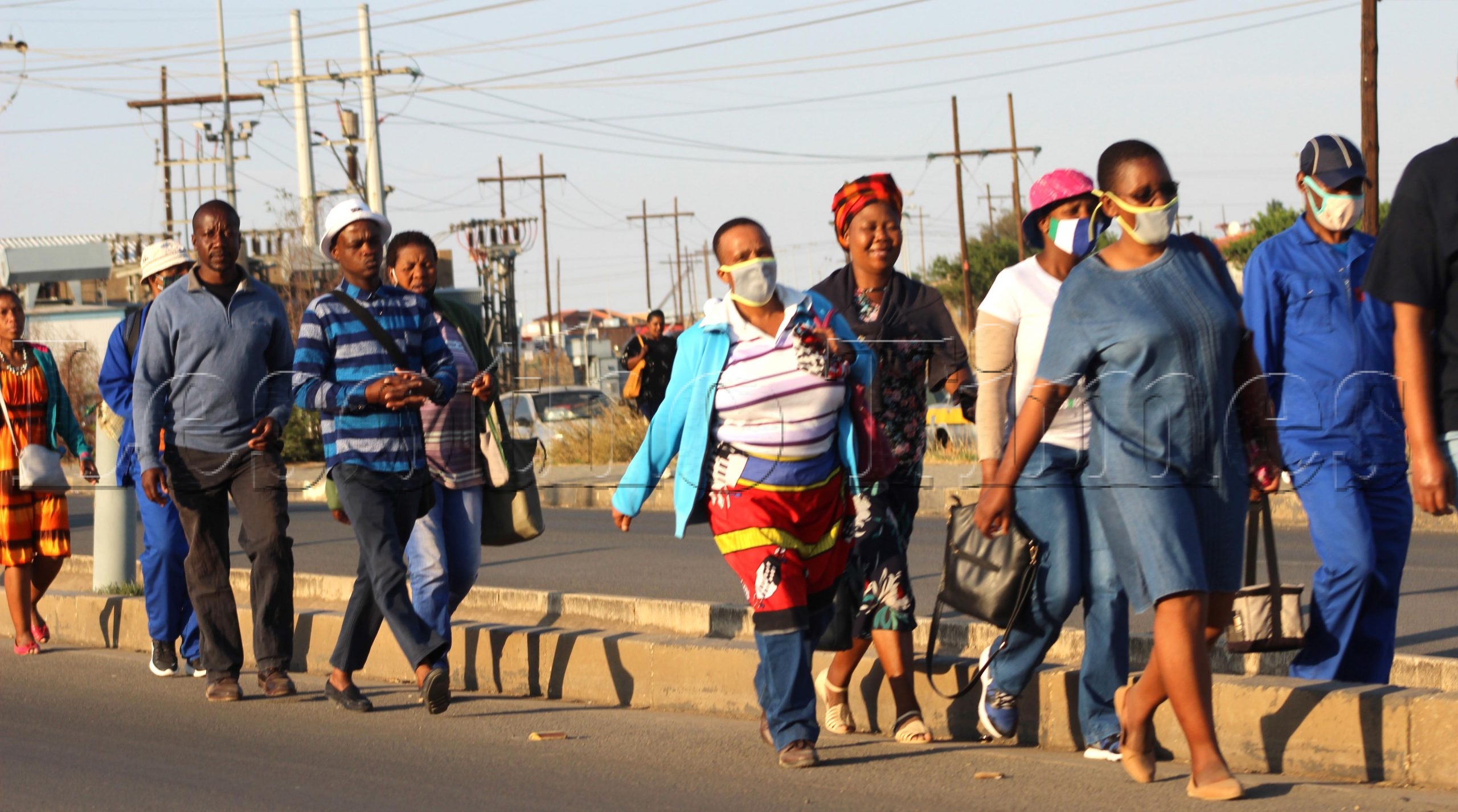Mathatisi Sebusi
TRADE unions are disgruntled that government continues to discriminate against women working in the textile and private security sectors when it comes to maternity leave payment.
Through a legal notice published last month, the government continues to afford women working in the textile and private security sectors 12-week maternity leave of which only six weeks is paid.
Ironically, their counterparts working in other sectors and those under government employment are afforded 12 weeks of paid maternity leave.
According to the Trade Unions interviewed by the Lesotho Times, the government gazetted Labour Wages (Notice of Intention to Submit Recommendations for Minimum Wages 2024/2024 to the Minister) 2024, which they complained favoured women working in the private sector and those employed by the government, over those working in the textile and private security sectors.
Speaking to the Lesotho Times yesterday, Independent Democratic Union of Lesotho (IDUL) Secretary General, May Rathakane, said the legislation was not only discriminatory but “also gave employers an opportunity to abuse workers”.
He said they had engaged Prime Minister Sam Matekane and Minister of Labour and Employment Tṧeliso Mokhosi on the matter from as far back as 2023. They were promised, Mr Rathakane said, that the situation would be resolved but nothing had happened.
Much to their chagrin, the section they are aggrieved by is still in the legal notice and no effort has been taken to address their grievance.
The Labour Code Wages (Notice of Intension to Submit Recommendations for Minimum Salary Wages 2024/2025 to the Minister) Notice, 2024, which was gazetted on 1 March 2024 reads: “An employee who has completed more than one year of continuous service with the same employer in the textile, clothing and leather manufacturing shall be entitled to receive six weeks paid maternity leave.
“An employee who has completed more than one year of continuous service with the same employer other than in the textile, clothing and leather manufacturing sector and private security sector, shall be entitled to receive six weeks paid maternity leave before confinement and six weeks paid maternity leave after confinement”.
It continues to state that “an employee who has completed more than one year of continuous service with the same employer in the private security sector, shall be entitled to receive six week’s paid maternity and benefits for all employees eligible for maternity leave, shall be limited to two confinements per employee during her employment with the same employer”.
Mr Rathakane said the discrimination had resulted in the textile industry recording the highest rates of infant mortality. This, Mr Rathakane said, was because new mothers hurried to return to work “so that they can get paid and be able to feed their newborns”.
He further noted that expectant mothers working in the textile sector, also delayed taking maternity leave because they could not afford to stay home on unpaid leave. Hence, they risked their lives and those of their unborn children.
“Women are all equal and childbirth is all the same. It makes no sense why women working in the textile sector are treated otherwise. This discriminatory law gives employers a platform to abuse workers,” Mr Rathakane said.
“In December last year (2023) we had a meeting with the Prime Minister at the State House, and he promised that the legal notice would be amended before it can be published,” he said.
Contacted for comment, Mr Mokhosi, said that maternity leave duration and payment decisions had been reached through collective bargaining.
He said different companies from different sectors came together and agreed on the duration for maternity leave, and how each sector would be able to pay its employees.
Mr Mokhosi said it was not easy to force employers to pay women for a certain period of maternity leave as that would not only compromise women in the workplace but would also result in employers preferring men over women because of the maternity leave issue.
“From the onset, the Labour Code did not provide for paid maternity leave, but collectively employers managed to ensure that the maternity leave is paid and even adjusted it from four weeks to six weeks,” Mr Mokhosi said.
“However, now with the new law, the Labour Code Amendment Act 2024, which has just been passed, every company will be compelled to have a bargaining council which will negotiate issues relating but not limited to workers’ salaries, well-being and sick leave payment and duration.”


